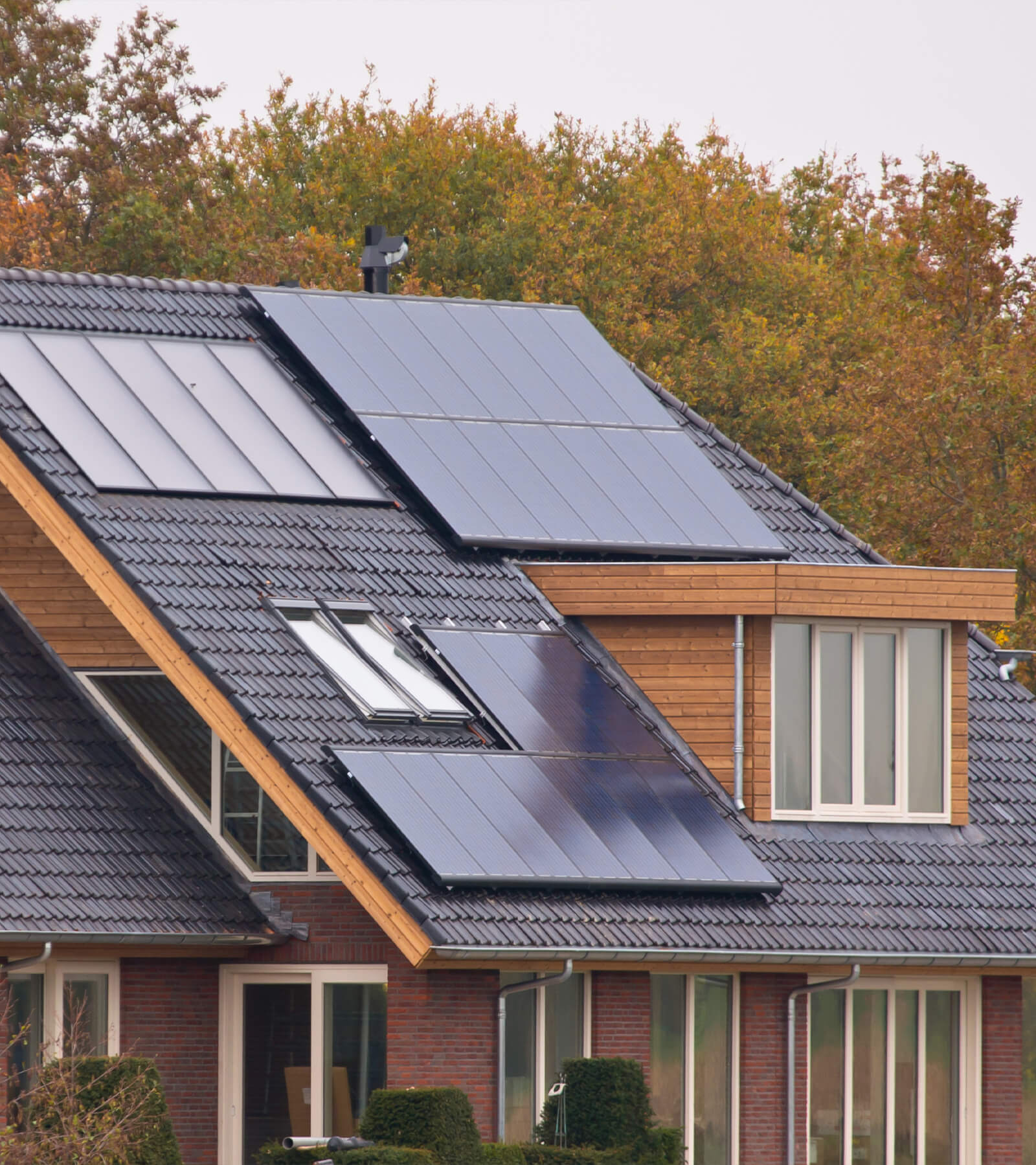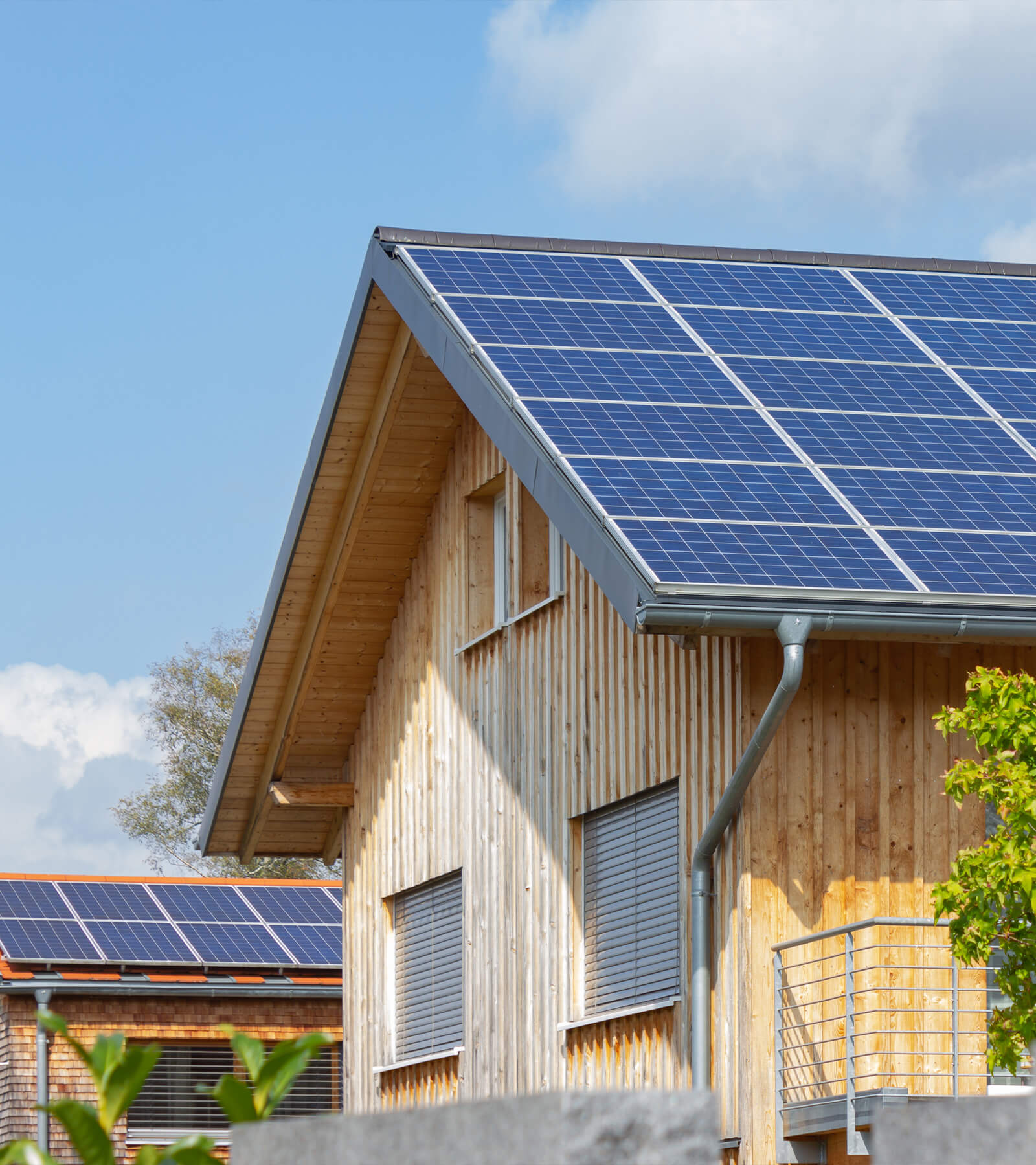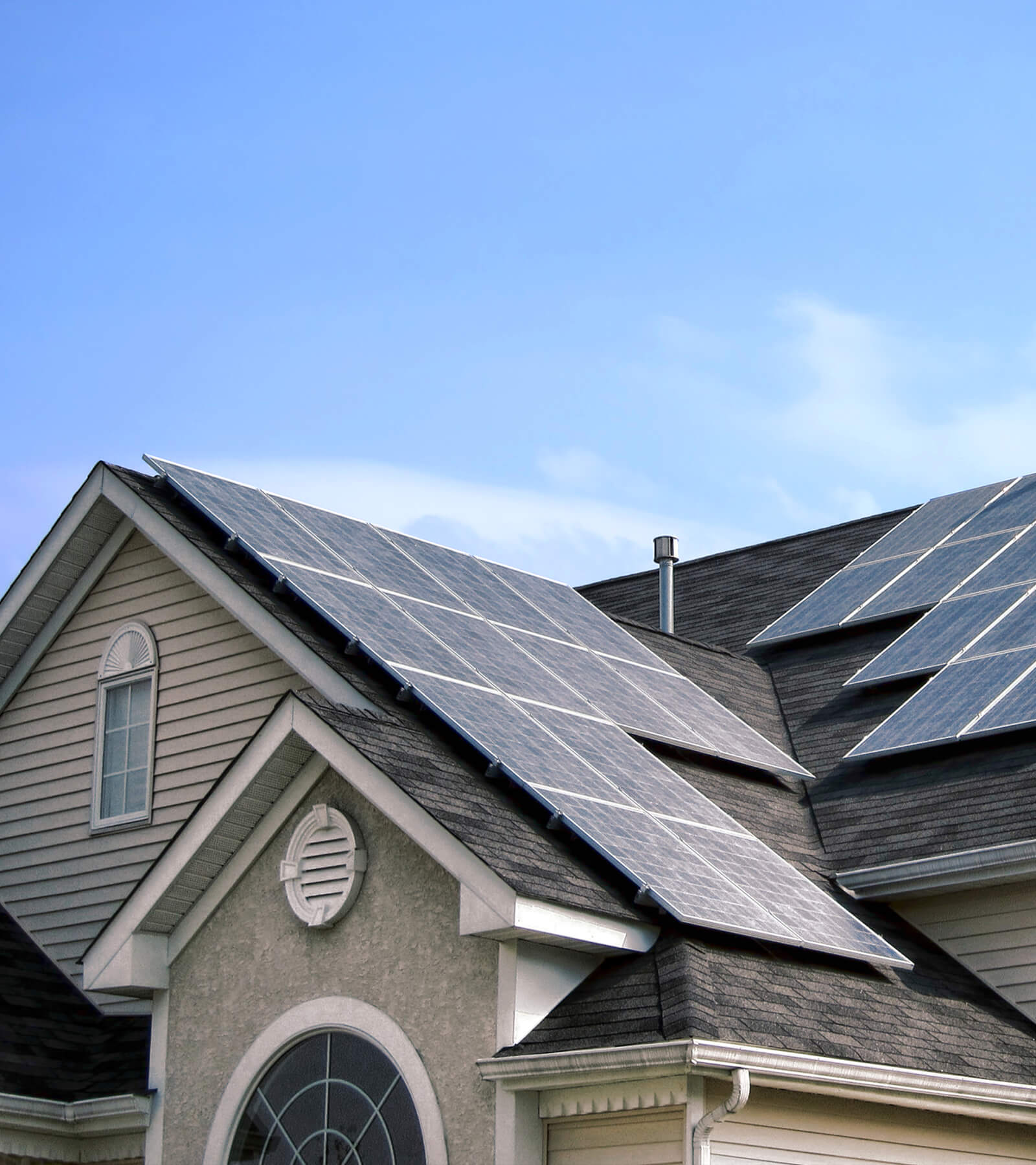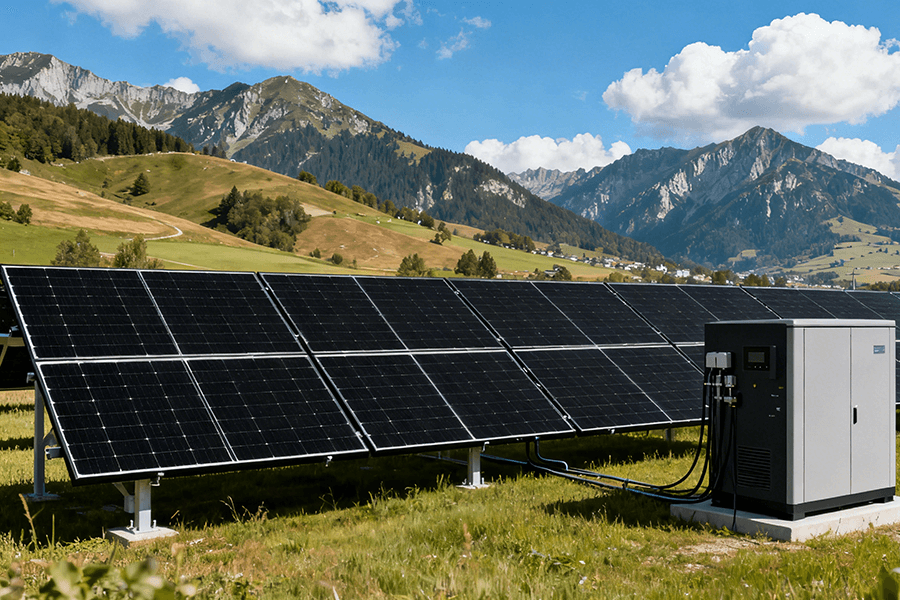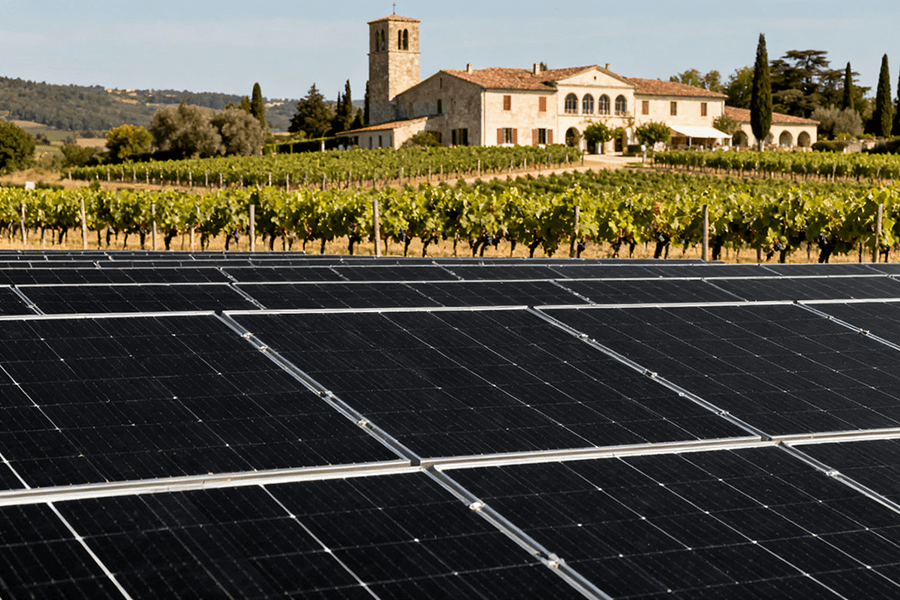
The Wine Industry’s Energy Headache (And The Container-Sized Cure)
Let’s cut to the chase: European wineries guzzle energy like a sommelier at a tasting.
According to the EU’s TESLA project, the wine sector consumes a staggering 1.75 billion kWh annually. Italy and France lead the charge, each accounting for approximately 500 million kWh per year. For large-scale wineries, this translates to an annual energy expenditure of 150–300 MWh. A significant portion—40%—is dedicated solely to fermentation temperature control.
This isn’t just about efficiency; it’s about preservation. Any misstep in maintaining optimal temperatures can turn a promising batch of Cabernet into a disappointing blend that resembles sour lemonade more than the sought-after, silky red.
The Changing Consumer Landscape
The stakes are even higher when considering the evolving consumer landscape. Today’s wine enthusiasts are more environmentally conscious than ever, scrutinizing labels like seasoned detectives.
- A 2024 Wine Intelligence survey revealed that 68% of European buyers are willing to pay 10% or more for “eco-certified wine”.
- This growing demand for sustainable products aligns with the EU’s upcoming 2025 wine sector reforms, which tie 80% of climate aid to sustainability compliance.
Wineries now face the complex challenge of balancing power reliability, cost management, and environmental responsibility—a juggling act as tricky as pouring wine with one hand while trying to text with the other.
BESS Containers: The Game-Changers
Enter Battery Energy Storage System (BESS) containers: the game-changers in winery energy management. These modular, mobile units offer far more than your average backup battery.
- Intelligent: They are designed to anticipate energy challenges.
- Adaptable: Capable of adjusting to fluctuating power demands.
- Proactive: Working silently behind the scenes to prevent issues that could compromise both product quality and the bottom line.
Think of BESS containers as a winery’s indispensable energy sidekick, ensuring smooth operations and safeguarding the integrity of every vintage.
BESS Containers: Saving Wineries From Energy Disasters (One Batch At A Time)
BESS isn’t merely a power storage solution—it’s a safeguard against potential winemaking disasters. Let’s explore its capabilities through real-life European success stories, highlighting how it revolutionizes the wine industry.
Fermentation: Precision Temperature Control for Optimal Results
The fermentation process stands as a pivotal moment in winemaking. Even the most minuscule temperature fluctuations can wield significant influence over the final product. A ±1°C swing during this stage has the potential to transform a promising Pinot Noir into an unpalatable vintage. Grid outages pose a substantial threat, as any disruption to the cooling systems can lead to spoilage. This is precisely where BESS (Battery Energy Storage System) containers demonstrate their invaluable worth.
Take, for instance, the experience of a renowned French wine cooperative in Bordeaux, a region celebrated for prestigious estates like Château Lafite Rothschild and other First Growths. During the 2023 harvest, a 3-hour grid blackout occurred precisely when 10,000 liters of Cabernet Sauvignon were in the midst of fermentation. Thanks to their 300 kVA BESS container, which was seamlessly integrated with a chiller system, the temperature was maintained at a consistent 22°C throughout the outage. The outcome was truly remarkable: no wine was lost, the winemaking team avoided unnecessary stress, and the final batch earned an impressive 92 points in Decanter, a testament to the BESS’s effectiveness.
The implications of temperature fluctuations are stark. A 2022 study revealed that a single temperature spike during fermentation can reduce wine value by up to 25%. This is a particularly significant concern in regions like Bordeaux, where even mid-tier wines face challenges with 50% en primeur sales rates. In this context, BESS is not just a form of insurance—it’s a strategic investment that protects profitability and preserves the quality of the wine.
Harvest Season: Mitigating Peak Energy Costs
Harvest season ushers in a period of intense activity in wineries. Crushers operate around the clock, and chillers work overtime to process and store the grapes. This surge in demand coincides with peak electricity rates, as EU utilities typically charge three times more for power during peak hours. As a result, wineries often find themselves grappling with exorbitant energy bills.
BESS addresses this issue through a strategy known as “peak shaving.” By utilizing stored energy during periods of high electricity costs, wineries can avoid drawing power from the grid and significantly reduce their expenses. A prime example is a Tuscany-based cooperative, located near the iconic Sassicaia estate, often referred to as Italy’s “wine king.” In 2024, after installing a 1MWh BESS container, the cooperative achieved a 35% reduction in peak demand charges during the harvest season, translating to annual savings of €60,000. To put this into perspective, these savings could fund the purchase of 10 new oak barrels or cover a year’s worth of vineyard maintenance costs.
Table 1: Peak Shaving Savings (Tuscany Winery Case Study)
| Metric | Before BESS | After BESS | Improvement |
|---|---|---|---|
| Peak Demand (kW) | 1,200 | 780 | -35% |
| Annual Harvest Energy Cost | €171,400 | €111,400 | €60,000 saved |
| Payback Period | — | 4.2 years | — |
This case study underscores the financial benefits of BESS implementation, demonstrating how it can optimize energy usage, reduce operational costs, and enhance the overall sustainability of winemaking operations.
Green Wine, Happy Customers: BESS and Sustainability Cred
Sustainability isn’t a fleeting trend—it’s a powerful revenue driver reshaping the wine industry. Battery Energy Storage Systems (BESS) are transforming wineries into “green wine” trailblazers by seamlessly integrating with renewable energy sources and significantly slashing carbon emissions. This strategic shift not only appeals to environmentally-conscious consumers but also unlocks new market opportunities and regulatory incentives.
Renewable Energy Integration: From Solar Panels to Sip
Wineries across Europe are embracing solar and wind energy as key components of their sustainability strategies. Solar panels are a natural fit for wineries, with their expansive rooftops providing ample space for installation, while wind turbines can harness the power of the breeze in suitable locations. However, the intermittent nature of these renewable sources—with the sun setting and the wind dying down—creates challenges in maintaining a consistent energy supply. This is where BESS steps in as a game-changer, storing excess green energy generated during peak production periods for use when demand is high.
Case Study 1: Fernández de Piérola Winery, Rioja, Spain
The Fernández de Piérola Winery in Rioja exemplifies the transformative potential of BESS. By installing a wind turbine and a 1.2-megawatt-hour (MWh) BESS container, the winery achieved an impressive milestone: 100% energy self-sufficiency. The wind turbine generates more than double the energy required by the winery, and the BESS stores this surplus power, ensuring a steady energy supply even when the wind subsides. Additionally, the winery can sell excess energy back to the grid, creating an additional revenue stream.
The success of this initiative extends beyond energy independence. Fernández de Piérola now markets its “Wind-Powered Tempranillo,” which commands a 12% premium over its non-certified counterparts. The eco-friendly branding has resonated with consumers, leading to rapid sales and a strengthened market position.
Case Study 2: Beronia Bodega, Rioja, Spain
Beronia Bodega in Rioja also capitalized on the synergy between solar power and BESS. By pairing 244-kilowatt (kW) solar panels with a BESS, the winery reduced its reliance on the grid by 34%, avoiding the emission of 144 tons of CO₂ annually—the equivalent of planting 7,200 trees. This significant environmental achievement earned Beronia Bodega the prestigious EU “Sustainable Wine” certification in 2025. The certification not only enhanced the winery’s reputation but also translated into a 18% increase in direct-to-consumer sales, demonstrating the market’s appetite for sustainable products.
Carbon Footprint Reduction: Checking the EU’s “Farm to Fork” Box
The EU’s ambitious “Farm to Fork” strategy sets a target of 50% lower agricultural emissions by 2030, with 2025 reforms linking agricultural subsidies to emission reduction targets. For wineries, BESS offers a practical and efficient pathway to compliance, enabling them to meet regulatory requirements while also reducing operational costs.
Case Study 3: Zamora Company, Spain
The Zamora Company, owner of Ramón Bilbao wines, embarked on a comprehensive sustainability initiative in 2024, deploying BESS across three of its wineries. By storing solar energy and reducing reliance on fossil-fuel-powered grid electricity, the company is on track to achieve a 15% reduction in emissions compared to 2018 levels and reach 90% renewable energy use by 2025. This strategic investment in BESS not only aligns with the EU’s sustainability goals but also positions Zamora Company as a leader in the industry.
Case Study 4: Mosel Valley Winery, Germany
A winery in the Mosel Valley took its sustainability efforts a step further with an 800-kWh BESS installation. This system enables the winery to cut its annual CO₂ emissions by 250 tons, equivalent to offsetting 55 round-trip flights from Berlin to Paris. The significant reduction in carbon footprint not only contributes to environmental conservation but also enhances the winery’s brand image as a sustainable and responsible producer.
Table 2: Carbon Reduction Impact of BESS
| Winery Location | BESS Capacity | Annual CO₂ Reduction | Equivalent |
|---|---|---|---|
| Rioja, Spain (Fernández de Piérola) | 1.2 MWh | 150 tons | 3,300 tree plantings |
| Mosel Valley, Germany | 800 kWh | 250 tons | 5,500 tree plantings |
| Rioja, Spain (Beronia Bodega) | 500 kWh | 144 tons | 7,200 tree plantings |
BESS That Fits: Seasonal Swings and Tricky Terrain
European wineries aren’t one-size-fits-all—neither is BESS. Its modular design solves two big headaches: seasonal demand and wonky geography.
Seasonal Scaling: Pay Only for What You Need
The energy demands of wineries are as dynamic as the fermentation process itself. During the harvest season, wineries typically consume 2–3 times more energy compared to the off-season. This surge in energy use is driven by the operation of high-energy equipment such as grape crushers, destemmers, and cooling systems essential for preserving the quality of freshly harvested grapes. However, investing in a static energy storage solution that caters to peak demand year-round results in significant cost inefficiencies during the quieter months.
Battery Energy Storage Systems (BESS) offer a game-changing solution with their modular scalability. Similar to how winemakers adjust the acidity levels of their wines to achieve the perfect balance, wineries can now adapt their BESS capacity according to seasonal needs.
Let’s consider a practical example:
- Location: A renowned winery in the Douro Valley, famous for its exceptional Port wines
- Winter Operations: During the winter months, when the winery’s operations primarily involve wine storage, a 300kWh BESS is sufficient to meet the relatively low energy demands.
- Harvest Season: As the harvest season approaches, and the winery gears up for the intense activity of processing grapes, the BESS capacity is seamlessly increased to 1MWh.
This strategic adjustment allows the winery to efficiently power energy-intensive equipment, such as crushers and chillers, without overpaying for unused storage capacity during the off-season. As a result, the winery has achieved a remarkable 40% reduction in off-season energy costs, eliminating the financial burden of maintaining “sleeping” batteries.
Terrain-Adapted Installation: BESS on Hills (No Vineyards Harmed)
The picturesque landscapes of European vineyards, with their rolling hills, terraced plots, and narrow pathways, present both a visual treat and a significant challenge for the installation of traditional energy systems. Steep slopes, limited space, and the need to preserve the integrity of the vineyards make it difficult to implement conventional energy infrastructure without causing damage to the delicate ecosystem.
Enter BESS containers, the perfect solution for these unique geographical constraints. These compact and robust units are designed to blend seamlessly into the vineyard environment, much like a well-camouflaged camper in the wilderness. Their modular nature allows for flexible installation, enabling wineries to place them in optimal locations without disrupting the existing layout of the vineyards.
Let’s take a closer look at an innovative implementation:
- Location: A winery in the Lavaux region of Switzerland
- Geographical Challenge: Nestled on terraced plots with slopes reaching up to 45°, this winery faced the challenge of integrating an energy storage solution without compromising the integrity of its historic vineyards.
- Solution: A 500kWh BESS container, strategically installed on an unused terrace corner.
To ensure the BESS container harmonized with the surrounding landscape:
- Aesthetic Integration: The winery opted for weathered steel cladding that mirrored the aesthetic of local agricultural structures.
- Environmentally-Friendly Mounting: Adhering to the principles of the Wine and Agricultural Quality Initiative (WAQI), the BESS was mounted on a low steel frame, eliminating the need for extensive groundwork and safeguarding the vine roots from damage.
The result is a near-invisible installation that has become a topic of curiosity among tourists, who often mistake it for a wine storage unit. In reality, this unobtrusive BESS plays a crucial role in ensuring the winery’s energy independence and sustainability.
Why We’re Your BESS Partner: Maxbo Solar’s Winery Expertise
Full disclosure: I’m with Maxbo Solar, and we’ve built our Battery Energy Storage System (BESS) containers for wineries—because we understand that your top priority isn’t just “energy storage”—it’s crafting exceptional wine. Here’s why we stand out in the industry:
We Speak Your Language
Avoiding technical jargon that doesn’t directly relate to your winemaking needs is our specialty. Instead of simply discussing “lithium-ion cathodes,” we translate the technology into practical benefits:
“Our advanced battery tech ensures your Chardonnay remains at a consistent 13°C, even during severe storms, safeguarding the delicate fermentation process.”
What truly sets our team apart is its unique composition. Comprising former winemakers, electrical engineers, and energy consultants, we intimately understand the stakes.
- A 2-hour power outage during fermentation isn’t just an inconvenience—it’s a potential disaster that can ruin an entire batch of wine.
- Our communication is always tailored to the needs and concerns of winemakers, ensuring that you fully understand how our BESS solutions will protect your investment and enhance your wine quality.
We Tailor to Your Season
We recognize that wineries have fluctuating energy demands throughout the year. That’s why we design scalable BESS solutions, like our installation in the Douro Valley.
With our 2025 “Vintner Series” BESS containers:
- Start small: Begin with a 300kWh system
- Expand as needed: Grow up to 2MWh as your business or energy requirements evolve
This flexibility means you won’t be paying for excessive storage capacity during the off-season (e.g., January, when energy demands are lower). Our systems are suitable for wineries of all sizes, from family-owned estates to large cooperatives, offering customized energy solutions that align with your specific requirements and budget.
We Build for Your Landscape
Our commitment to sustainability extends beyond energy storage. Our BESS containers utilize:
- Locally sourced, recyclable materials (including weathered steel)
- Low-impact frames
This approach makes our systems ideal for the unique landscapes of vineyards, such as:
- The terraced vineyards in Lavaux
- The scenic Mosel Valley
Our installations are designed to:
- Blend seamlessly into the natural surroundings
- Minimize visual impact
- Ensure no vines are uprooted during installation
We prioritize the preservation of the vineyard’s aesthetic and ecological integrity, so you can enjoy the benefits of energy storage without compromising the beauty of your estate.
We Pair BESS with Renewables Seamlessly
One of our key strengths is integrating BESS with renewable energy sources, such as solar panels. Take our collaboration with a Rioja winery as an example:
- Solar+BESS Setup: 800kW solar panels paired with our 1.2MWh BESS
- Results Achieved:
-
- 60% renewable energy use
-
- Obtained EU certification
-
- Reduced carbon footprint
-
- Enhanced brand image as an environmentally responsible producer
-
- Enabled a 12% increase in wine prices
As a bonus, we’re still receiving thank-you bottles as a token of their appreciation!
Ready to See the Results for Yourself?
Explore our comprehensive case studies, including the story of a Bordeaux winery that saved 10,000 liters of Cabernet thanks to our BESS solution, at www.maxbo-solar.com.
At Maxbo Solar, we’re not just selling BESS—we’re partnering with you to:
- Make better wine
- Save money on energy costs
- Appeal to the growing market of eco-conscious drinkers
Let us help you take your winery to the next level with our innovative energy solutions.
Conclusion: BESS—The Vintner’s Secret Ingredient
BESS containers aren’t just “batteries.” They’re the unsung heroes of sustainable winemaking: keeping temperatures steady, slashing bills, and turning “green goals” into “green labels.”
Here’s the forecast: By 2035, 50% of medium-to-large European wineries will have BESS containers. Why? Because consumers want eco-wine, the EU wants lower emissions, and winemakers can’t afford “oops” batches in a market where even top wines face pricing pressure. It’s not a trend—it’s survival.
For wineries ready to stop stressing about energy and start focusing on wine, BESS is the answer. And at Maxbo Solar? We’re here to pour the first glass of your (perfectly fermented) success.

